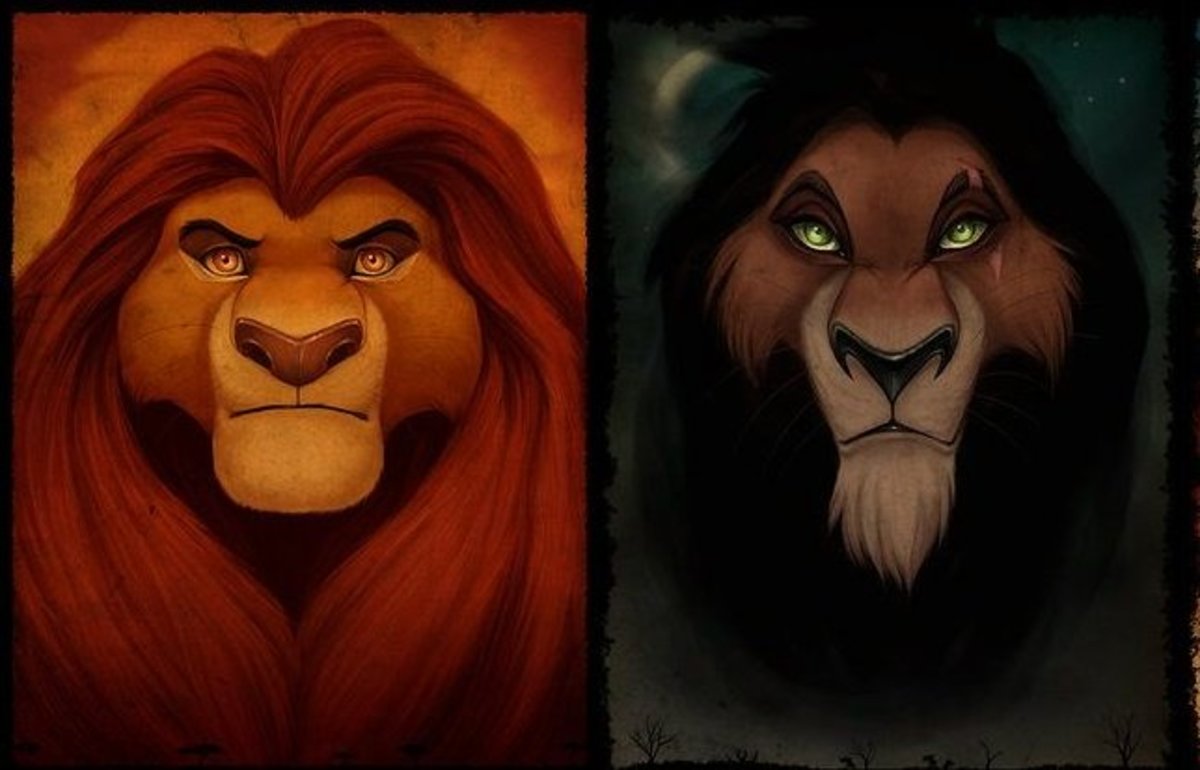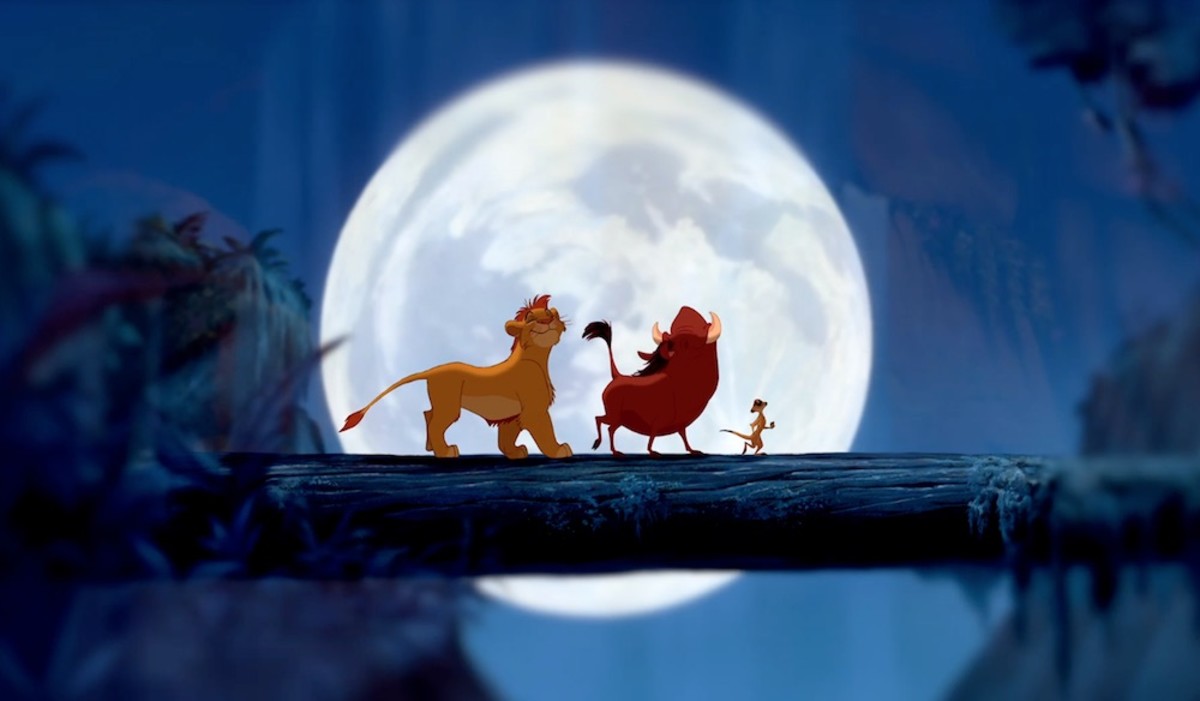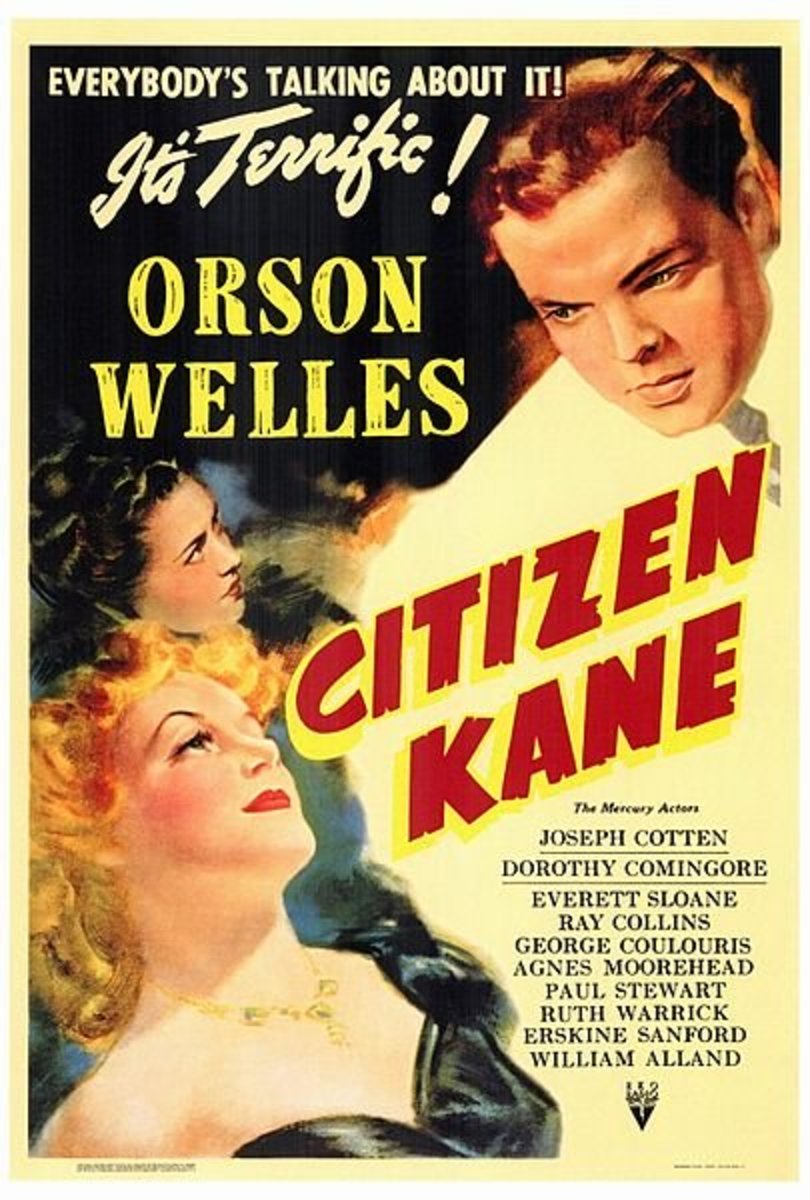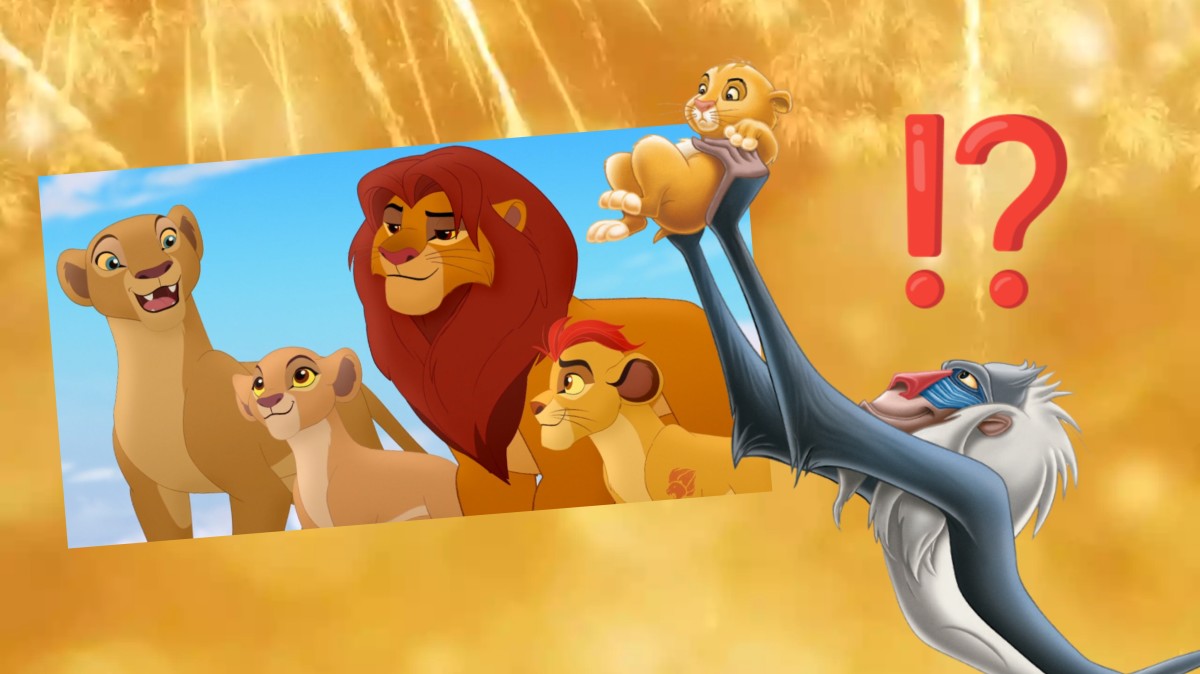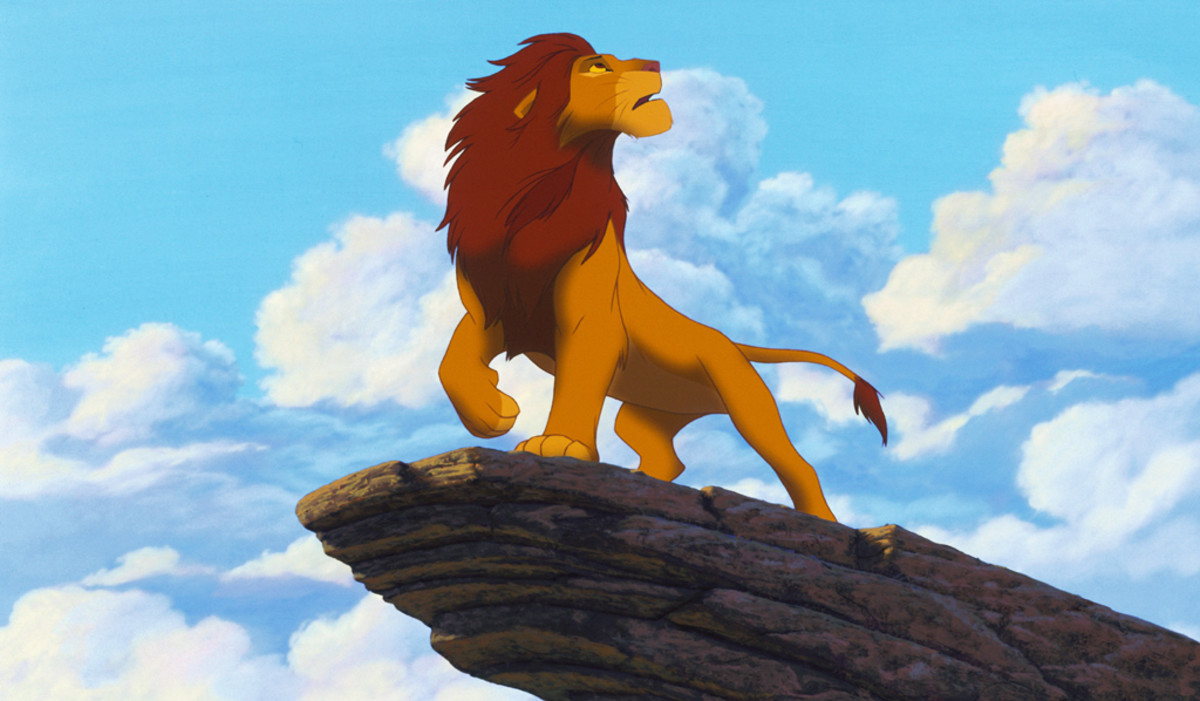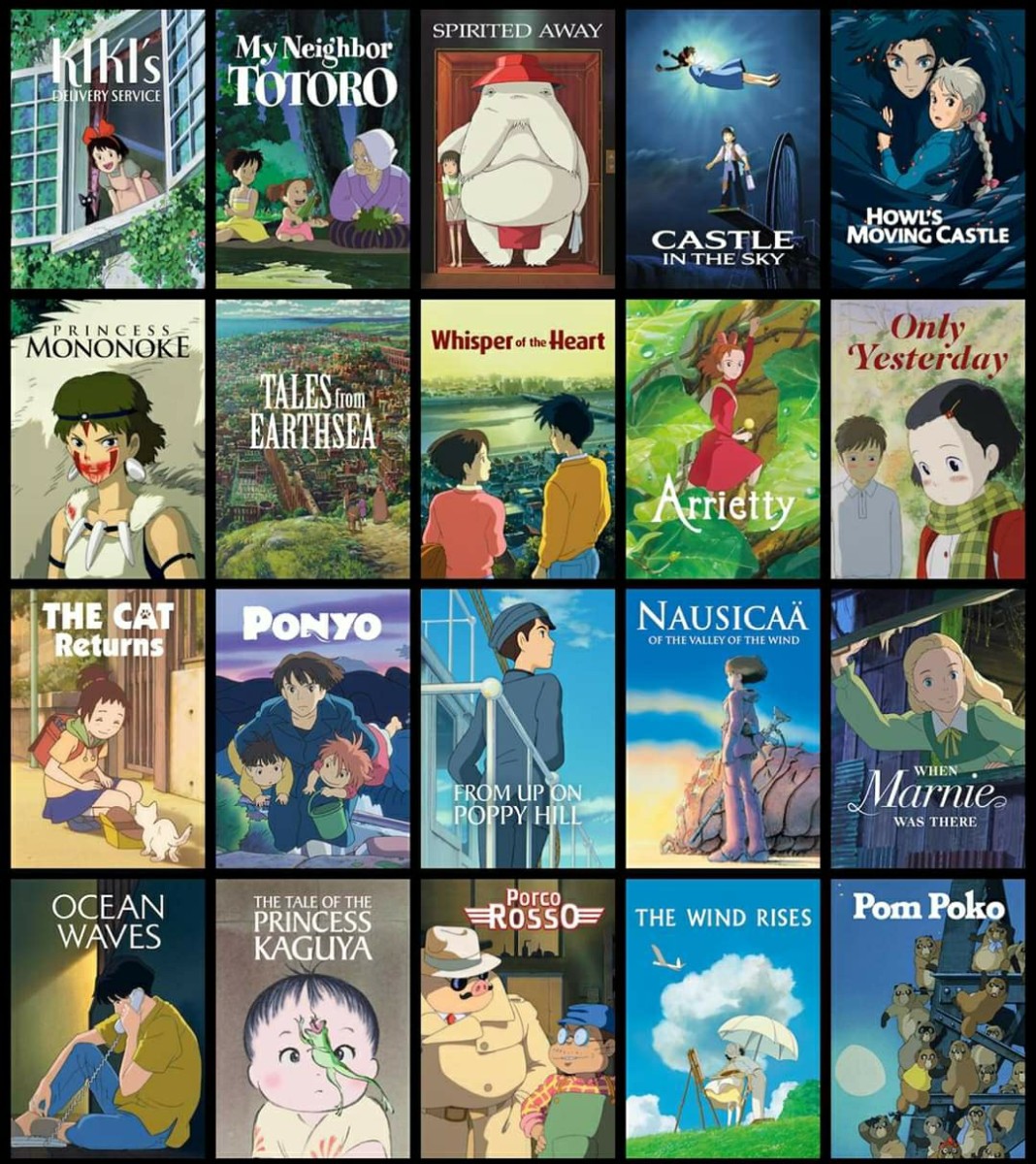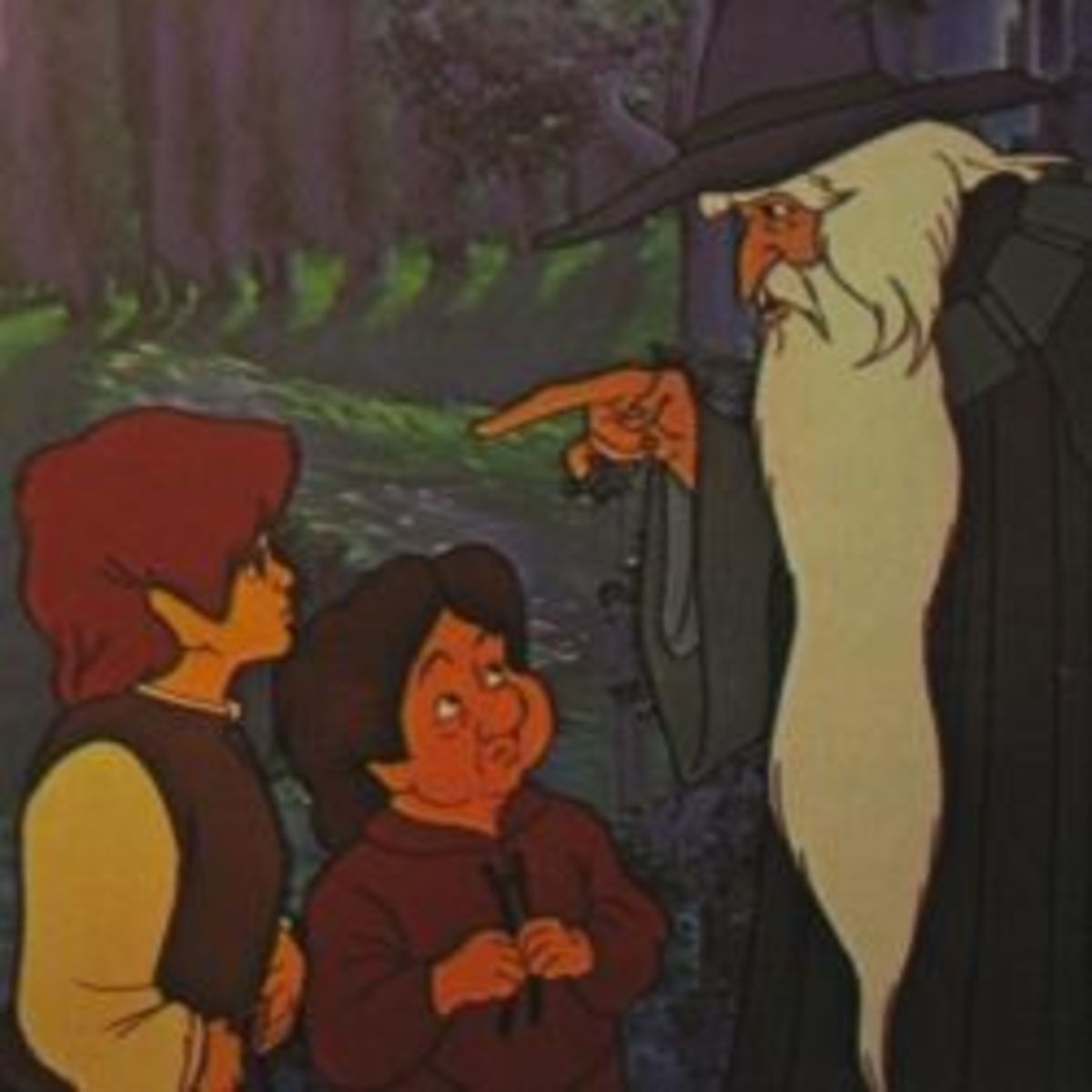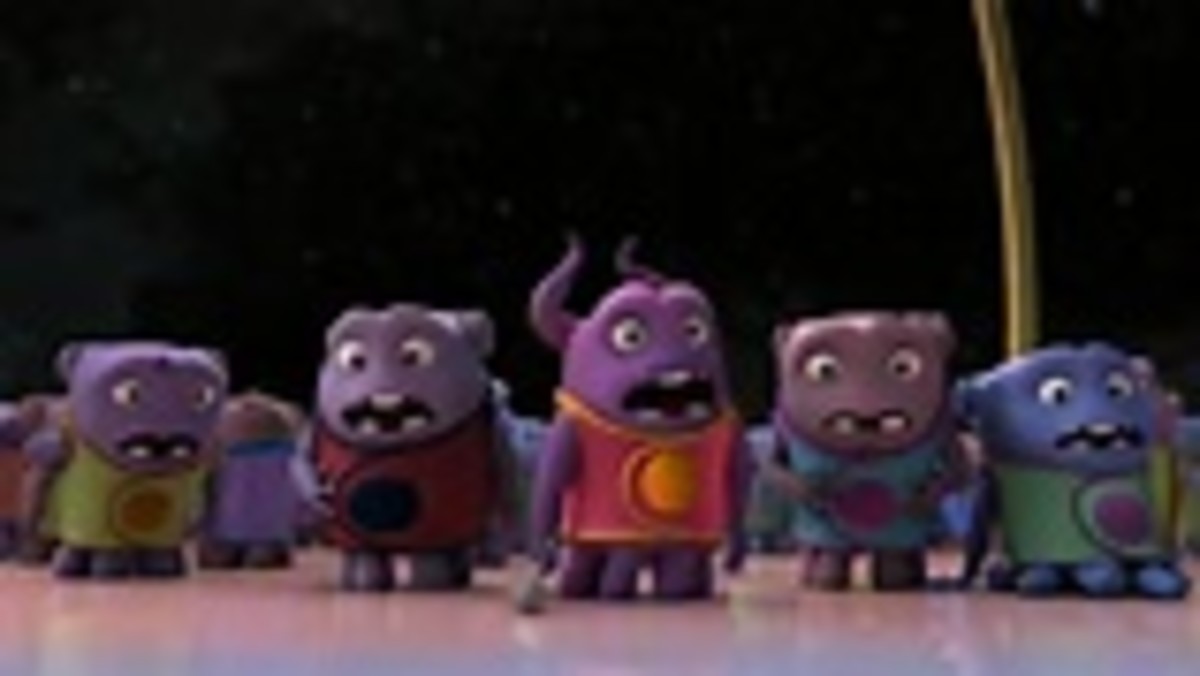The Lion King: Movie Review
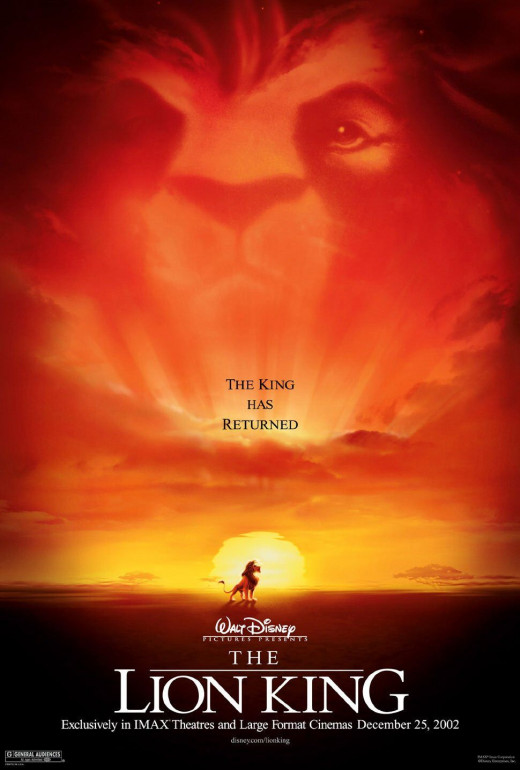
The Lion King is a children’s animation produced by Walt Disney Feature Animation, released by Walt Disney Pictures in 1994 and directed by Roger Allers and Rob Minkoff that tells the story of a young prince destined to be king and his journey to get there. Along the way the young prince, Simba (Jonathan Taylor Thomas), must deal with far worse problems than he would have ever imagined. With the birth of Simba, his uncle Scar (Jeremy Irons) is one step further from being King. Therefore Scar, with his army of hyenas, plots to kill both the king and his son. Scar exploited Mufasa’s love for Simba in order to kill him (Mufasa). However, killing Simba was a far harder task. So much so that Simba was not killed, but rather ends up escaping and being rescued and raised by a quirky meerkat, Timon (Nathan Lane), and a slow witted but kind-hearted warthog, Pumbaa (Ernie Sabella). This unlikely duo raises their third musketeer by teaching him their ways of eating bugs and living a peaceful life in jungle paradise.
When his past comes barreling back at him in the form of his best friend Nala (Moira Kelly), a now fully grown Simba (Matthew Broderick) learns that his uncle has reduced his home to a wasteland and that he must go back and retake the throne in honor of his father. After forcing to Scar to admit that he (Scar) killed Mufasa, Simba with the help of Timon, Pumbaa, Nala, Zazu (Rowan Atkinson) (Mufasa’s majordomo), Rafiki (Robert Guillaume) (the baboon priestess) and the rest of the lionesses in the pride wage war on Scar and his dimwitted army of hyenas and Simba is rightfully named king.
People complain that because The Lion King is based off of Shakespeare’s “Hamlet” the film is not successful or entertaining. One critic for Slant Magazine notes that “The Lion King is loaded with hoary biblical references…and Shakespearean shout-outs, but that's all they are” (Gonzalez). However, Shakespearian references do not lessen the value a child will have on said film because the demographic that The Lion King is intended for is far younger than the age that Shakespearian works are intended for. Additionally, the combination of “Hamlet” and flashy musical numbers add a layer of innocent humor and entertainment to the film.
The Lion King is a 1994 Walt Disney animated children’s film; the film was not intended for the age when people are able to read and/or truly comprehend Shakespearian works. Tim Dirks, writer and editor defines Children Films as
“non-offensive, wholesome, and entertaining films (usually rated G for 'suitable for general audiences') that do not include topics or scenes with violence, foul language and other profanity, religious issues, gratuitous sexuality and so on, and are specifically designed for children 12 and under (or for family viewing)…and cover a wide range of genre[s]…and/or focus on children's-related themes that teach a lesson or moral, or show that good can triumph over evil”
With the concept of what a children’s film is defined, The Lion King has a few scenes that could be considered violent. However, any and all violence depicted in The Lion King fell under the constraints of a G rating in not only 1994, but again in 2011 when The Lion King 3D went to theatres. This being said, The Lion King is an effective and successful children animation film. Whereas, a William Shakespeare play such as “Hamlet” would be considered suitable for a high school age group or older. The happy-go-lucky soundtrack also contributes to The Lion King’s status as a children’s film.
Expertly hand drawn out, catchy musical scenes put in throughout the film add to the comprehension of the film in an entertaining fashion. The American Film Institute’s (AFI) promise to preserve the honor of film making and artists and to educate future generations. In 1995, the film was ranked #4 on AFI’s 10 Top 10, and “Hakuna Matata” was added to AFI’s 100 Best American Film Songs of All Time at #99. “Hakuna Matata” was also nominated for Best Song at the 1994 Academy Awards; it lost to only “Can You Feel the Love Tonight”, another song from the film’s soundtrack. In 1995, The Lion King was also awarded with an Academy Award for Best Music Original Score, a BMI Film Music Award, a CFCA Award for Best Original Score, and a Golden Globe for Best Original Score. Jeremy Gerard, a film critic for Variety observes that The Lion King,
“set off by some of the richest imagery the studio's animators have produced…The Lion King marks a dazzling -- and unexpectedly daring -- addition to the Disney canon. There's little doubt that this film, abetted by a marvelous cast of star voices and songs by Elton John and Tim Rice tendingtoward huge, sonorous choral numbers, will draw huge, sonorous crowds this summer and beyond”
With a domestic total gross of $312,855,561, The Lion King did extremely well at the box office in the United States, especially considering the budget for this film was only around $45 million. To put those numbers into a different perspective, The Lion King was able to make back the money spent almost seven times over. The numbers speak for themselves as The Lion King is ranked #1 for Opening Weekend Theatre Average with an opening gross of $1,586,753 by Box Office Mojo. The Lion King far surpassed the expectations of Walt Disney Inc. and is still an extremely well known piece of American pop culture.
American pop culture is an ever expanding collection of images and sounds and is riddled with new artists imitating the styles and stories of the past. In music, this process is called “sampling”. A formal definition of sampling, in terms of popular culture, is “the process of taking a short musical phrase from one recording and using it in another recording, often in repeated sequences and sometimes in an adapted or edited form” (“Sampling”). A well-known example of sampling is the intro to Queen/David Bowie's "Under Pressure" (1981) used eight years later in Vanilla Ice's "Ice Ice Baby" (1990). Sampling exists in the film industry but is referred to as “adaptation”. The Lion King is a stage-to-film adaptation, more commonly referred to as a theatrical adaptation, of Shakespeare’s “Hamlet” A theatrical adaptation in simple terms is a film that is very apparently influenced by an already existing play. Also, the film does not have to be strict with scenes, characters or setting. Theatrical adaptations are very common in American film history. Shortly after The Lion King was released, The Lion King II: Simba’s Pride was. The Lion King II: Simba’s Pride was not nearly as successful as its predecessor, but was also a direct-to-video film. Meaning the film was never released in theatres or broadcast on television.
With record breaking box office numbers and an impressive assortment of film and music awards, it’s quite easy to see that The Lion King was an instant Walt Disney success and classic. While the use of theatrical adaptation did not particularly add to the success of the film, it also did not hinder the film’s success. Taking everything into consideration, it is very safe to say that The Lion King is a successful and entertaining film.
Works Cited
“About the American Film Institute.” American Film Institute. American Film Institute, 2012. Web. 1 May 2012.
“AFI’s 100 YEARS...100 SONGS.” American Film Institute. American Film Institute, 2012. Web. 1 May 2012.
“Chicago Film Critics Awards - 1988-97.” Chicago Film Critics Association. Chicago Film Critics Association, 2012. Web. 1 May 2012.
Dirks, Tim. “CHILDREN-KIDS FAMILY FILMS Part 1.” filmsite. Ed. Tim Dirks. American Movie Classics Company LLC, 2012. Web. 28 Apr. 2012.
Gerard, Jeremy. “The Lion King.” Rev. of The Lion King (1994), dir. Roger Allers and Rob Minkoff. Variety. Reed Elsevier Properties Inc., 2012. Web. 1 May 2012.
Gonzalez, Ed. “The Lion King.” Rev. of The Lion King, by Roger Allers and Rob Minkoff. Slant Magazine 28 Sept. 2003: n. pag. Web. 28 Apr. 2012.
“The Lion King.” Box Office Mojo. IMDB.com Inc., 2012. Web. 1 May 2012.
“LION KING, THE.” Official Website of HFPA and the Golden Globe Awards. Hollywood Foreign Press Association, 2012. Web. 1 May 2012.
Mecchi, Irene, Jonathan Roberts, and Linda Woolverton. The Lion King. Roger Allers and Rob Minkoff. Walt Disney Pictures, 1994. Film.
“1995 BMI Awards.” Broadcast Music, Inc. Broadcast Music, Inc, 2012. Web. 1 May 2012.
“1994 (67th) Original Song.” Academy Awards Database. Academy of Motion Picture Arts and Sciences, 2012. Web. 1 May 2012.
Rooney, Darrell, and Rob LaDuca, dirs. The Lion King II: Simba’s Pride. Walt Disney Home Video, 1998. Film.
“Sampling.” Def. 3. Encarta Dictionary: English (North America). Microsoft, n.d. Web. 1 May 2012.
“TOP WEEKEND THEATER AVERAGES 1982-Present.” Box Office Mojo. IMDB.com Inc. , 2012. Web. 1 May 2012.

